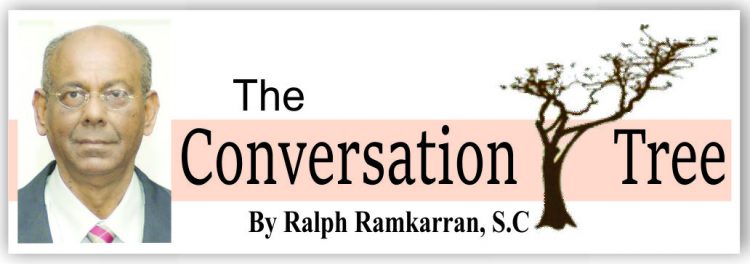
For decades, English courts have placed a higher burden on public figures to prove defamation, which includes both libel and slander. This is based on the view that if a person chooses public activity, that person must expect a higher degree of public scrutiny. For example, it is hardly likely that an English court will countenance a defamatory intent against a public figure where an allegation of conflict of interest is made on facts which are essentially true but could be capable of a more generous interpretation.
Fair comment is an ancient common law (judge made law) defence. But it was replaced in the Unites States in 1964 by a defence created in the case of New York Times v Sullivan in which the US Supreme Court decided that actual malice has to be proved to establish defamation. Since it is very difficult to prove actual malice in a journalist or a politician in the cut and thrust of journalism or politics, public life in the US has been largely liberated from the fear of defamation. While the defence of fair comment remained in the U.K. it was increasingly found to be too restrictive for adequate scrutiny of public officials. The courts of the UK have never adopted New York Times v Sullivan but began to test a more liberal approach to criticisms of public officials.
Defamation has been a major political weapon against journalists and newspapers in Guyana. The first major case was Burnham v New Guyana in the late 1960s. The story was headlined “PM’s cow electrocuted” and was written by a young journalist named Moses Nagamootoo. Burnham’s complaint was that the story libeled him in alleging that the Prime Minister’s fence was electrified. Damages in the then huge sum of $25,000 were awarded and upheld by the Court of Appeal. Libel actions thereafter became a major weapon against newspapers critical of the PNC and its governments. The principal complainants were Burnham and Desmond Hoyte, the latter having filed several libel actions against the Catholic Standard. He once referred to its editor, Fr. Andrew Morrison, as a “cassocked obscenity.” Fr. Morrison was once targeted for assassination. Fr. Bernard Darke was unfortunately martyred in error, in place of Fr. Andrew Morrison, when he was stabbed to death on July 14th, 1979, in Brickdam, while he was taking photographs for the Catholic Standard during an anti-government demonstration. The defence of fair comment on a matter of public interest was raised in all the cases but was never upheld. But the judiciary at that time is not the judiciary that exists today.
When the PPP/C came to office in 1992, I advised that libel actions should not be utilised as weapons against the press and that offensive, even libelous, criticism should be answered as vigorously as they were made. One of the reasons was the growing attitude of the courts to view criticisms of public officials with a greater degree of liberalism. However, the culture of attack by libel was difficult to eradicate. My waning influence in the PPP by the mid to late 2000s saw a number of libel actions being filed by leading government officials. This unwise approach to criticism resulted in the disastrous fiasco of the Bharrat Jagdeo v Frederick Kissoon case in which Dr. Roger Luncheon said under searching cross-examination, just before the 2011 general elections, that no African Guyanese was qualified to be appointed as an Ambassador. The case was subsequently abandoned. Then Opposition politicians believe that it influenced the election results in 2011.
The search in the UK continued for a regime of defamation law which would accommodate a more liberal approach to facilitate accountability by public officials. This search led the House of Lords to the ruling in Reynolds v Times Newspapers Ltd in 1999. The House of Lords held that the common law enabled the court to give appropriate weight, in today’s conditions, to the importance of freedom of expression by the media on all matters of public concern. Among the matters that are to be considered by the court is the nature of the information, and the extent to which the subject-matter is a matter of public concern. What is known as “the Reynolds Defence” has now been abolished in the UK and replaced by Defamation Act of 2013 which creates a defence of “publication on a matter of public interest.”
The courts of Guyana and the CCJ are very likely to uphold “the Reynolds Defence” so that the defence of fair comment on a matter of public interest would carry far higher weight and importance than it did in the 1960s to the 1990s. We are also in a different era with a different judiciary.
It was reported in Stabroek News yesterday that while the World Press Freedom Index has promoted Guyana four places up to 51 out of 180 on the assessment by Reporters without Borders, it also maintained that “officials often use laws to silence opposition journalists.”





